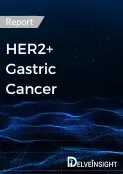The HER2-positive gastric cancer treatment landscape has experienced unprecedented metamorphosis, evolving from a specialized therapeutic niche into a flagship area of targeted cancer medicine. This transformation is fueled by deepened insights into HER2 molecular mechanisms, breakthrough antibody-drug conjugate (ADC) developments, and extensive regulatory recognition across international markets.
Medical Context and Treatment Imperatives
HER2 amplification and overexpression establish a molecularly defined patient subset within gastric and gastroesophageal junction carcinomas. Conventional HER2-targeted monoclonal antibody approaches provided limited clinical advantages for certain populations, leaving substantial therapeutic gaps unaddressed. Advanced HER2+ gastric cancer patients commonly encounter disease progression after standard interventions, creating pressing needs for innovative treatment solutions delivering enhanced clinical benefit with tolerable safety profiles.
Transformative Therapeutic Developments
The treatment paradigm has undergone fundamental reconstruction through advanced ADC platforms specifically designed for HER2 targeting. Fam-trastuzumab deruxtecan-nxki (Enhertu) epitomizes this therapeutic transformation, demonstrating outstanding clinical efficacy in previously treated HER2+ gastric cancer populations and obtaining regulatory approval as a standard care option for patients with prior trastuzumab-based therapy exposure.
China's pharmaceutical regulatory environment has witnessed comparable ADC achievements, with disitamab vedotin (RC48) receiving conditional marketing authorization for advanced HER2-overexpressing gastric malignancies. This milestone represents a major advancement for domestically developed HER2-targeted ADC technologies and broadens therapeutic access throughout Asian patient communities.
These regulatory successes have validated ADCs as clinically effective treatments for HER2+ gastric cancer management, inspiring extensive research programs investigating ADC combinations with immunotherapy agents, HER2 bispecific antibodies, and targeted kinase inhibitors.
Financial Landscape and Growth Trajectories
Market research indicates the worldwide HER2+ Gastric Cancer Drugs Market will achieve substantial multi-billion dollar valuations across key healthcare markets, driven by widespread implementation of HER2-directed ADCs and precision medicine strategies. Current market intelligence forecasts sustained expansion supported by enhanced HER2 testing capabilities, expanded regulatory approvals, and robust development pipelines of innovative therapeutic candidates.
Fundamental Growth Drivers:
- Regulatory Success: Authorization of breakthrough treatments enabling indication expansions and coverage pathways
- Diagnostic Innovation: Advanced biomarker detection methodologies increasing identified HER2+ patient populations
- Treatment Evolution: ADC integration across therapeutic sequences with potential advancement to primary care settings
- Geographic Expansion: Rapid market access and commercialization throughout China and broader Asia-Pacific regions
Competitive Environment and Industry Players
The competitive arena encompasses global pharmaceutical leaders alongside innovative biotechnology enterprises. Major market participants include AstraZeneca and Daiichi Sankyo (collaborative Enhertu development), Roche/Genentech (established HER2 antibody platform), and regional innovators including RemeGen (disitamab vedotin/RC48 originator). A diverse ecosystem of HER2+ Gastric Cancer Companies continuously advances next-generation ADCs, bispecific platforms, targeted inhibitors, and combination strategies aimed at optimizing therapeutic effectiveness and response sustainability.
Innovation Pipeline and Research Directions
Multiple transformative development pathways are influencing future therapeutic possibilities:
Advanced ADC Engineering: Sophisticated molecular designs featuring improved payload delivery mechanisms, enhanced cytotoxic capabilities, and optimized linker technologies progressing through gastric cancer clinical evaluation programs.
Immunotherapy Combinations: Strategic clinical trials evaluating ADC partnerships with checkpoint inhibitor therapies to harness synergistic mechanisms and expand clinical benefits across heterogeneous HER2 expression patterns.
Multispecific Targeting Approaches: Bispecific and multispecific antibody constructs simultaneously engaging HER2 and additional tumor targets or immune activation pathways to broaden therapeutic coverage and circumvent resistance.
Primary Treatment Integration: Encouraging advanced clinical results supporting evaluation of ADCs in first-line treatment applications, potentially expanding market opportunities and patient access significantly.
Market Access and Healthcare Integration
Realizing the full commercial potential of the HER2+ Gastric Cancer Market Size requires sophisticated HER2 diagnostic infrastructure utilizing immunohistochemical and molecular testing platforms. Healthcare payer adoption of high-value ADC therapies depends on demonstrated clinical outcomes, improved patient quality of life, and compelling health economic value propositions. Regional variations in reimbursement frameworks and health technology assessment processes will significantly influence market penetration and therapeutic availability.
Persistent Obstacles and Medical Challenges
Despite remarkable therapeutic progress, critical challenges remain:
Resistance Development: Tumor heterogeneity and acquired resistance pathways continue limiting sustained therapeutic responses in certain patient groups.
Safety Management: ADC-specific toxicities, including respiratory complications associated with particular agents, necessitate careful clinical monitoring and management protocols.
Access Inequities: High-cost innovative biologics may create treatment disparities across diverse economic regions without appropriate pricing strategies and inclusive healthcare policies.
Future Outlook and Commercial Potential
The HER2+ gastric cancer Treatment Market is positioned for exceptional growth as ADCs and novel HER2-targeting modalities expand their clinical footprint. Continued regulatory achievements, enhanced diagnostic capabilities, and positive outcomes from early-line and combination clinical trials will accelerate market expansion substantially. Companies demonstrating superior therapeutic performance, acceptable safety profiles, and strong economic value will capture leading market positions in this rapidly evolving and highly competitive therapeutic landscape.
Latest Reports Offered by Delveinsight:
Acute Pyelonephritis Market | Asperger Syndrome Market | Attention Deficit Hyperactivity Disorder Adhd Market | Cardiopulmonary Management Device Market | Childhood Atropine For Myopia Progression Market | Cholangiocarcinoma Market | Dyspepsia Market | Emphysema Market | Genital Herpes Market | Growth Hormone Deficiency Market | Guillain-barré Syndrome Market | Hairy Cell Leukemia Market | Intestinal Obstruction Market | Malignant Fibrous Histiocytoma Market | Menopause Market | Metabolic Acidosis Market | Multiple Myeloma Market | Neurostimulation Devices Market
About DelveInsight
DelveInsight is a trusted provider of life sciences and pharmaceutical market research and consulting, offering actionable insights that empower organizations to make informed decisions. With a commitment to delivering strategic intelligence, DelveInsight serves as a key partner to global pharmaceutical, biotechnology, and healthcare companies looking to excel in an evolving market landscape.
Contact Us
Kanishk
Email: kkumar@delveinsight.com

